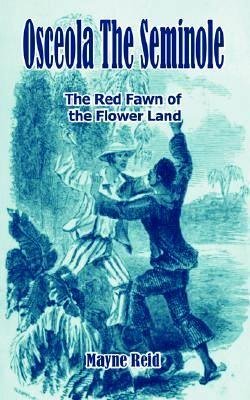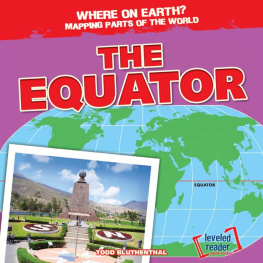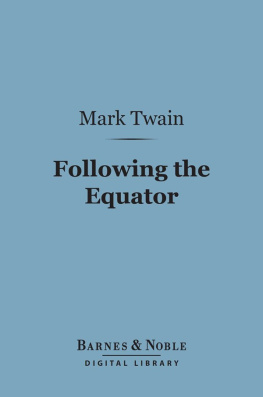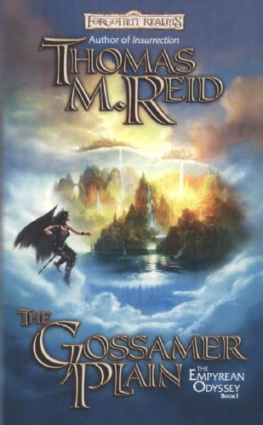PREFACE.
Table of Contents
It was at the end of the month of September, 1907, that the writer visited Java with the object of spending a brief vacation there.
The outcome was a series of articles in the "Straits Times," and after they appeared so many applications were made for reprints that we were encouraged to issue the articles in handy form for the information of those who intend to visit the neighbouring Dutch Colony. There was no pretension to write an exhaustive guide-book to the Island, but the original articles were revised and amplified, and the chapters have been arranged to enable the visitor to follow a given route through the Island, from west to east, within the compass of a fortnight or three weeks.
For liberty to reproduce some of the larger pictures, we are indebted to Mr. George P. Lewis (of O. Kurkdjian), Sourabaya, whose photographs of Tosari and the volcanic region of Eastern Java form one of the finest and most artistic collections we have seen of landscape work.
Singapore , July, 1908.
| First Impressions of Batavia |
| The British in Java |
| Botanist's Paradise at Buitenzorg |
| On the Road to Sindanglaya |
| Sindanglaya and Beyond |
| Hindu Ruins in Central Java |
| The Temples of Parambanan |
| People and Industries of Central Java |
| The Health Resort of East Java |
| Sunrise at the Penandjaan Pass |
| Hotels and Travelling Facilities |
First Impressions of Batavia.
Table of Contents
When consideration is given to the fact that Java is only two days' steaming from Singapore, that it is more beautiful in some respects than Japan, that it contains marvellous archaeological remains over 1,100 years old, and that its hill resorts form ideal resting places for the jaded European, it is strange that few of the British residents throughout the Far East, or travellers East and West, have visited the Dutch Colony.
The average Britisher, weaving the web of empire, passes like a shuttle in the loom from London to Yokohama, from Hongkong to Marseilles. He thinks imperially in that he thinks no other nation has Colonies worth seeing. British port succeeds British port on the hackneyed line of travel, and he may be excused if he forgets that these convenient calling places, these links of Empire, can have possible rivals under foreign flags.
There is no excuse for the prevailing ignorance of the Netherland Indies. We do not wish it to be inferred that we imagine we have discovered Java, as Dickens is said to have discovered Italy, but we believe we are justified in saying that few have realised the possibilities of Java as a health resort and the attractions it has to offer for a holiday.
Miss Marianne North, celebrated as painter and authoress and the rival of Miss Mary Kingsley and Mrs. Bishop (Isabella Bird) as a traveller in unfrequented quarters of the globe, has described the island as one magnificent garden, surpassing Brazil, Jamaica and other countries visited by her, and possessing the grandest of volcanoes; and other famous travellers have written in terms of the highest praise of its natural beauties.
Its accessibility is one of its recommendations to the holiday maker. The voyage across the Equator from Singapore is a smooth one, for the most part through narrow straits and seldom out of sight of islands clad with verdure down to the water's edge.
Excellent accommodation is provided by the Rival Dutch Mail steamers running between Europe and Java and the Royal Packet Company's local steamers, and the Government of the Netherland Indies co-operates with a recently-formed Association for the encouragement of tourist traffic on the lines of the Welcome Society in Japan. This Association has a bureau, temporarily established in the Hotel des Indes in Batavia, to provide information and travelling facilities for tourists, not only throughout Java, but amongst the various islands that are being brought under the sway of civilised government by the Dutch Colonial forces.
As our steamer pounded her way out of Singapore Harbour in the early morning, islands appeared to spring out of the sea, and seascape after seascape followed in rapid succession, suggesting the old-fashioned panoramic pictures of childhood's acquaintance. One's idea of scenery, after all, is more or less a matter of comparison. One passenger compares the scene with the Kyles of Bute; another with the Inland Sea of Japan, at the other end of the world. Yet, this tropical waterway is unlike either, and has a characteristic individuality of its own, none the less charming because of the comparisons it suggests and the associations it recalls.
We spent a good deal of our time on the bridge with the Captain, who was courteous enough to point out all the leading points on his chart.
The Sultanate of Rhio lies on the port bow, four hours' sail from Singapore. Glimpses of Sumatra are obtained on the starboard, and on the way the steamer passes near to the Island of Banka, reputed to contain the richest tin deposits in the world. This tin is worked by the Government of the Netherland Indies, with Chinese contract labour; and the revenue obtained is an important factor in balancing the Colonial Budget. It is interesting to note that the Chinese, who have long mined for gold and tin in the Malay Peninsula and Archipelago, were quite familiar with the rich nature of Banka's soil two hundred years ago, and that tin from this island was then a common medium of exchange in China and throughout the Far East wherever the adventurous Chinese merchant had penetrated.
The visitor landing at Tandjong Priok, the port of Batavia, after his experience of other Far Eastern ports, cannot fail to be struck by the excellence of the arrangements for berthing vessels and for storing cargo. We British people are so accustomed to the idea that our ports are the best and our trading arrangements unequalled that we are astonished when we discover that our shipping and commercial rivals know how to do some things better than ourselves, and that all wisdom is not to be found within the confines of England and among the people who are proud to own it as their place of birth. Our Far Eastern ports owe their supremacy to geographical position almost entirely. We have realised that during recent years in Singapore, and in our haste to correct the mistakes of former officials and residents, the Straits Settlements paid rather heavily when they expropriated the Tanjong Pagar Company which owned the wharves, docks and warehouses. Tandjong Priok may not handle the shipping that Tanjong Pagar does, but if they were called upon to do so, we have not the least doubt that our Dutch neighbours would rise readily to the occasion.
There is a Customs examination at Tandjong Priok. In our own case, it was a mere formality, the new duty on imported cameras not applying to our well-used kodak, since it was being taken out of the country again. But we could not help contrasting to the disadvantage of Singapore the examination of Chinese and other Asiatic passengers. Theoretically, in Singapore, there is no Customs service. It is a free port, and so, theoretically, one may land there free of vexatious examinations, such as one experiences at some Continental ports or on the wharves at San Francisco. But, as a matter of fact, they who have occasion to walk along the sea front in Singapore may see Asiatic passengers at any of the landing places turning out their baggage in sun or rain, while chentingsthe hirelings of the rich Chinese Syndicate which "farms" or leases the opium and spirit monopoliesexamine it for opium or spirits. There is no proper landing place, absolutely no proper arrangements for overhauling baggage, with the result that these poor Asiatics are subjected to examination under conditions that are a disgrace to a place which arrogates a front place in the seaports of the world.








